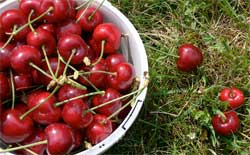
The province claims that while 62% of the reform projects were a success, 14% had "failed completely."
This information was made public by Sebopetsa Mogale, (acting) Chief Director: Farmer Support and Development at the Western Cape Department of Agriculture. He was addressing delegates University of Stellenbosch Business School in Bellville with his colleague, Dr Dirk Troskie, Director: Business Planning and Strategy at the department.
The province attributes its success to working with agricultural organisations and support land reform projects. "If we didn't partner with the agricultural sector, we would not have achieved this success," said Mogale. "Government cannot farm. It is through the mentorship and other support from the agricultural sector that those involved in land reform projects are able to make notable progress."
There were five indicators that used to the evaluate the programme:
According to Mogale, the highest scores occurred in a project's ability to service debt, gain access to markets show future growth.

On the downside, the lowest scoring indicators revolved around environmental matters. These included the percentage of farming energy generated through renewable or green energy, the degree of water contamination from farming practices and whether farms were used to their full potential.
Troskie indicated that the "Boompie Project" was one initiative where the Department was partnering with previously disadvantaged farmers in the deciduous fruit sector to expand the area under fruit production. It includes both new and established farmers.
The projects assist in linking the farmers to markets and allows them to participate in existing value chains.
Troskie explained that the industry provided trees and technical advice while the department was paying for land preparation, irrigation and drainage, among others. The viability of all projects was evaluated by the department's Comprehensive Agricultural Support Programme, generally known as CASP.
A total of 469 jobs were created between 2009 and 2012 through the project. He says this was more jobs than would have been created if the province had invested in manufacturing, construction, mining or retail.
He cautioned against South Africa's "inability to celebrate failure", stating that people who do not succeed should be allowed "to exit the process with dignity and re-enter at a later stage with the knowledge acquired from their first attempt".